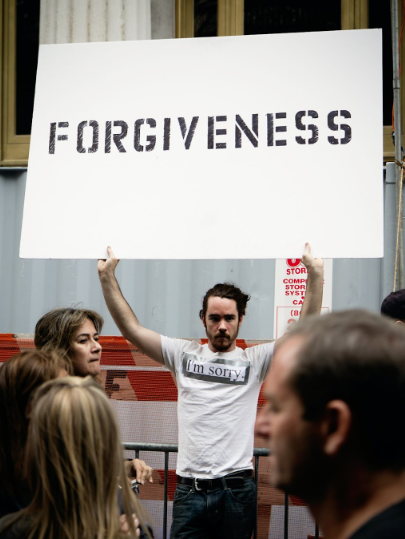Forgiveness should be kept for yourself

March 1, 2023
As people mature and face the difficult situation of having to forgive someone, chances are someone is in their back corner saying, “Let it go and be the bigger person.” While that person means no ill-will, forgiving someone for their sake is damaging to you and your well-being. Forgiveness should only be for your benefit.
Forgiveness means different things to different people, but ultimately is defined as the act of letting go of something or someone that has hurt you. The benefits of forgiveness are entirely personal, and while whoever you forgive gets the gift of a clear conscience, studies have proven that your mental and physical health will significantly improve due to the release of stress and resentment. “Forgiveness allows you to let go of the chronic interpersonal stressors that cause us undue burden,” Loren Toussaint, a professor of psychology at Luther College, said.
The rewards of forgiveness are for the individual practicing forgiveness because forgiveness does not mean you have to reconnect with the person that hurt you. You are not expected to provide forgiveness. Letting go allows you to move forward from bad and damaging experiences.
While forgiveness is not a substitute for justice, forgiveness can help you find peace with the situation by reducing the anxiety you feel over that incident. “Whether I forgive or don’t forgive isn’t going to affect whether justice is done. Forgiveness happens inside my skin,” Everett Worthington, a clinical psychologist, said.
Along with finding peace with a terrible situation, forgiveness allows you to gain control of the situation and the things that hurt you. When you forgive someone, you are letting go of the control they hold over you. They no longer matter to you, so they can no longer affect you. “[Forgiveness is] about focusing on what you can control in the here and now,” a Mayo Clinic article wrote.
As selfish as it sounds, keeping forgiveness to yourself helps maintain the authenticity of your forgiveness. You do not owe the person that hurt you forgiveness, but you also do not have to be mad at them or the incident. Forgiveness will set you free, and you have no need to announce that. Announcing your forgiveness puts you at risk for that same person to hurt you again, as they may feel the need to regain control over you.
Along with being great for your mental health, forgiveness and the stress relief it provides is good for your physical health. In a meta-analysis conducted by psychologist and a psychiatrist Yoichi Chida it was discovered that hostility and anger are related to greater risks of heart disease and negativity affect pre-existing heart conditions.
A study conducted by Toussaint showed people that practiced forgiveness had a large decrease in the amount of stress they felt and the stress-like symptoms “We thought forgiveness would knock something off the relationship [between stress and psychological distress], but we didn’t expect it to zero it out,” Toussaint said.
Another great thing about forgiveness is that the decision is your choice. You get to decide when you forgive someone and how you forgive someone. The choice to free yourself from stress and the control other people have over you and the reward that forgiveness provides is all up to you too.








